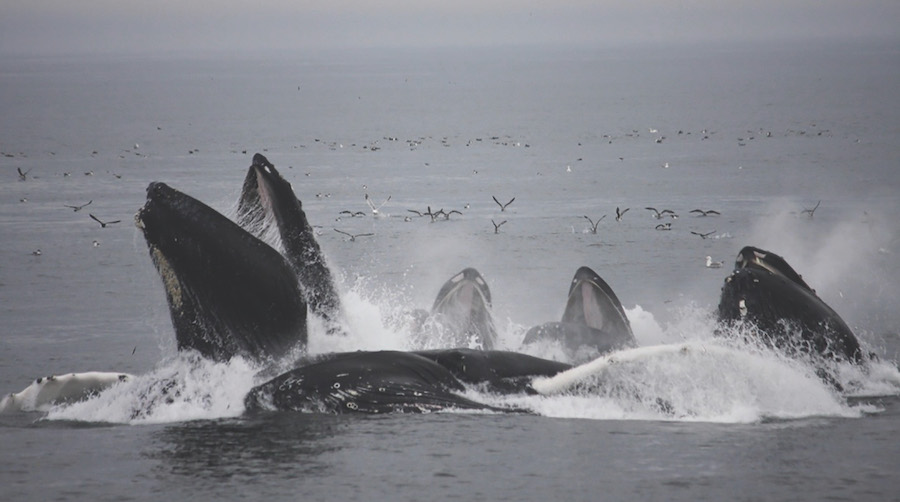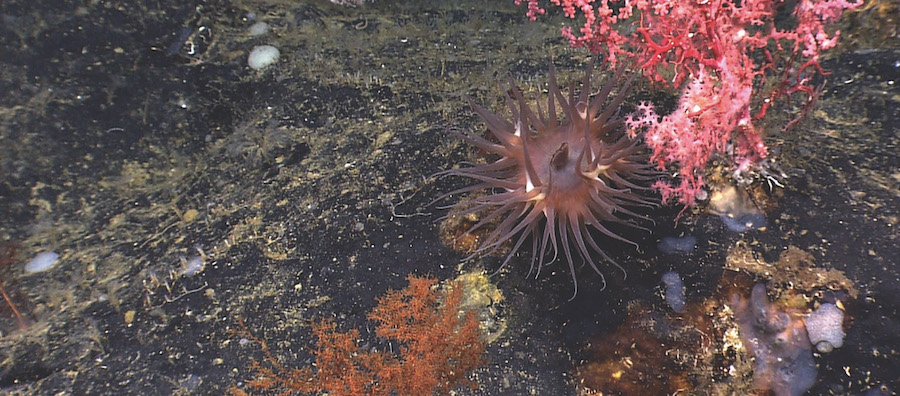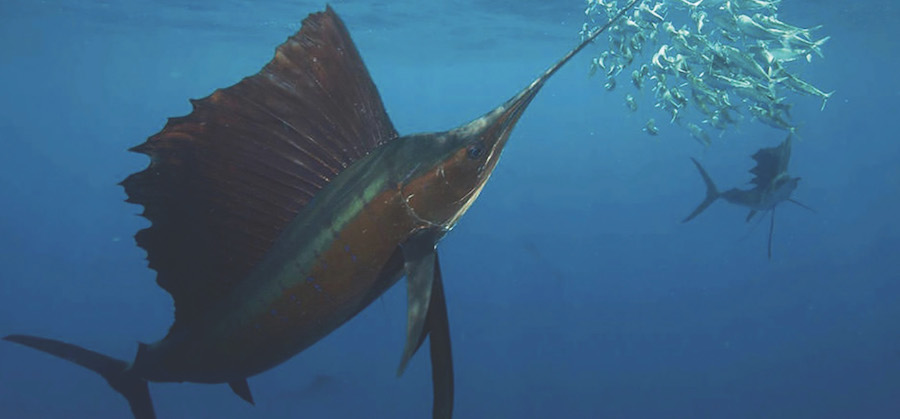EASTHAM — Three years ago, several Eastham residents began noticing a small flock of blue jays making the rounds about town. These birds weren’t just poking around yards and bird feeders; they became downright sociable.
Many of the local birdwatchers guessed who was responsible: Kerry Reid.
“I’ve had people come up to me and say, ‘Did you release a crow, or blue jays?’ ” she recalled.
Reid paused and laughed: “They were probably thinking, ‘Yeah, the crazy bird lady!’ ”
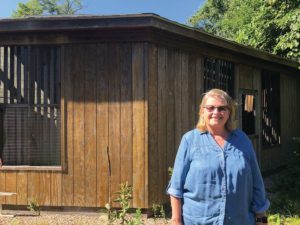
Reid, who’s lived in Eastham since 1986, has been a certified volunteer rehabilitator of birds for Wild Care since 1993. She’s had plenty of interaction with these migratory marvels, which can become very acclimated to people — especially if they’ve been rescued and nursed to recovery.
“People were having magic, mystical blue jay experiences all over Eastham, taking pictures of themselves hand-feeding a blue jay,” she said. “One of them was a blue jay sitting on the shoulder pad of one of the guys on the Nauset football team.”
It all started back in 1992, when Reid and her husband, the late Paul Lothrop, were doing yard work and came across a crow in distress. Like many people with good intentions, she brought it in, but didn’t really know how to care for it.
“I did everything wrong,” she said. Someone at Audubon’s Wellfleet Bay Wildlife Sanctuary gave Reid the phone number of Karen Von den Deale.
Von den Deale would go on to found Wild Care in 1993. But when Reid called her, she was running a wildlife rescue operation out of her basement. The crow from Reid’s yard didn’t last long, but it was the spark for her volunteer work. She became a licensed rehabilitator a year later, specializing in caring for the highly intelligent corvids, which include crows and blue jays.
There are several nonprofit groups on the Cape that care for sick and injured wildlife. Mark Faherty, science coordinator at the Wellfleet Bay Wildlife Sanctuary, says that’s a good thing. While it sounds right to let nature take its course, Faherty said, “The reality is the animals around us are living in more suburban circumstances than truly wild ones.”
Human intervention makes sense, Faherty added, because “most of the injuries animals sustain here are caused by humans — our cars, our tree work, our cats, lures left behind by fishermen.”
Wild Care takes in birds, reptiles, and small mammals (the largest on record being a Virginia opossum). Larger mammals, such as foxes and raccoons, are cared for at Cape Wildlife in Barnstable. The Wellfleet Sanctuary recovers sea turtles, living or dead, while dolphins and whales are referred to IFAW. These organizations collaborate to make sure animals are cared for correctly.
Wild Care is licensed by the Mass. Natural Heritage and Endangered Species Program. All staff members must be certified rehabilitators. Unlicensed volunteers cannot be alone in the facility without a licensed rehabber on hand.
The test for a permit, which Reid took in 1993, “requires a great deal of in-depth knowledge,” according to Stephanie Ellis, Wild Care’s executive director since 2016. Ellis recommends that people volunteer at a wildlife hospital before trying to take the exam.
The state permit is the first step to obtaining a permit to care for migratory birds from the U.S. Fish and Wildlife Service.
Facilities are also inspected, Ellis said. “If you say you’re rehabilitating crows, they need to make sure that your aviaries meet the size requirement for that species.”
Wild Care is also required to submit a state and federal report every year detailing every animal it takes in, and its disposition.
With Reid’s help, Wild Care has had the luxury of using two aviaries for its winged tenants. One is on its Smith Lane property, opened in 2016. The other is in Reid’s yard, constructed by her late husband 20 years ago. This is handy because corvids and smaller songbirds should not be rehabilitated together, Ellis explained. It’s important that songbirds recognize crows as a threat.
The job isn’t without its hazards. Crows are especially fond of shiny objects. “I’ve had earrings ripped out of my ears,” Reid said. “I don’t wear jewelry now.”
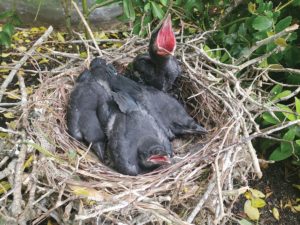
Ellis said that everyone from lifeguards to Cape Cod National Seashore staff to Eversource workers have brought in injured critters, such as the four young crows who were stranded after the tree they were nesting in was chopped down in Chatham.
“Workers waited for a mom to appear, but after many hours it was clear she was not around or not coming back,” according to Diane Byers, the town’s animal control officer.
“We had to be as hands-off as possible,” Ellis said. “We also had an adult crow, and the adult ended up feeding the babies in the aviary. The fidelity to the young is so strong.”
While Reid’s work with wildlife has led to many positive outcomes for birds, it’s also been a boost for her during tough times, like when her husband died in 2013. When she’s doing her work with birds, she said, she forgets about everything else. “It’s grounding,” she said.
